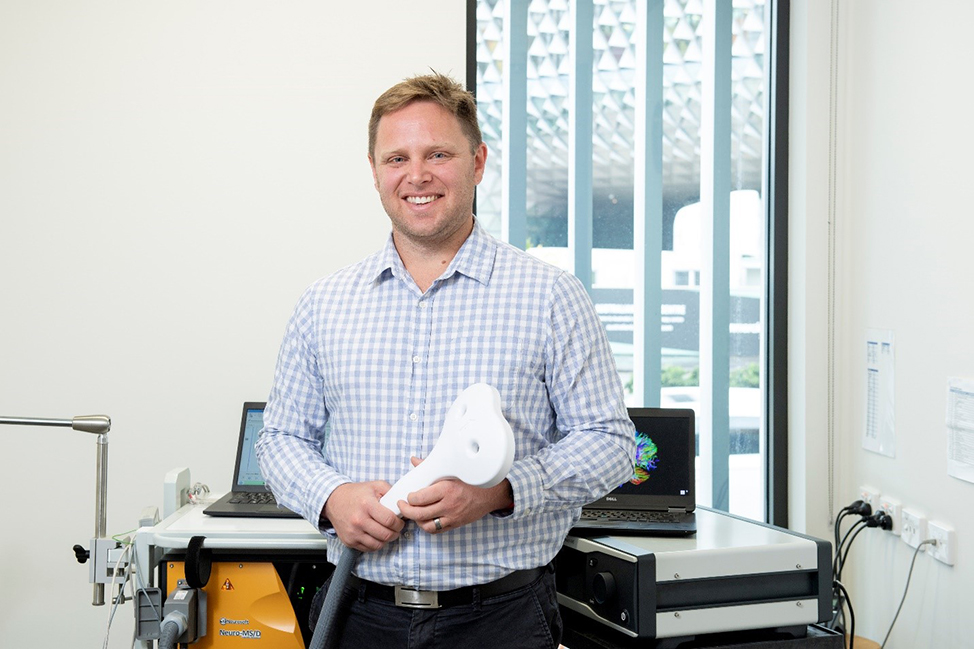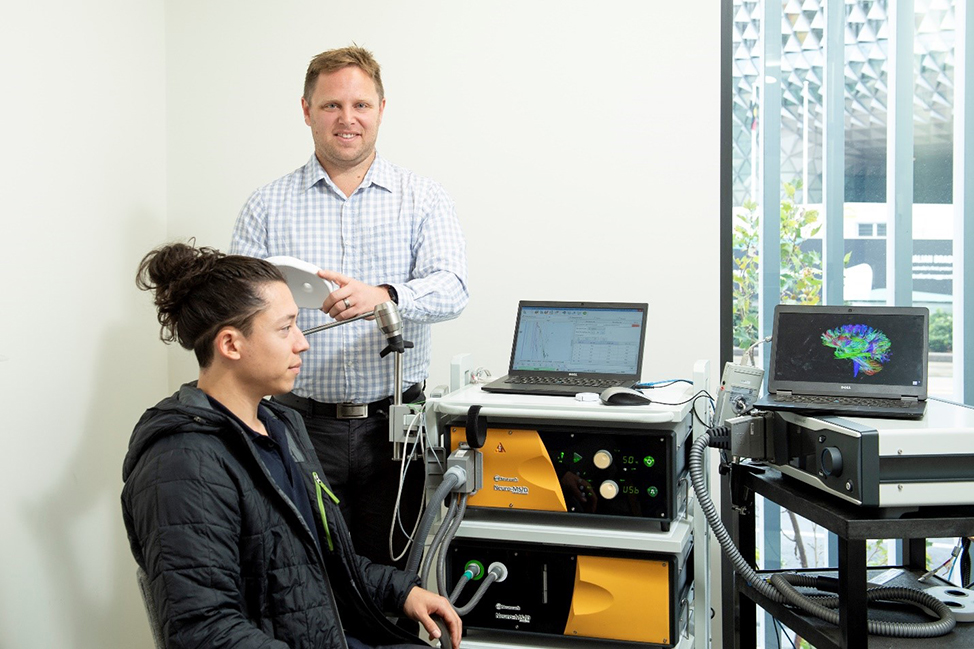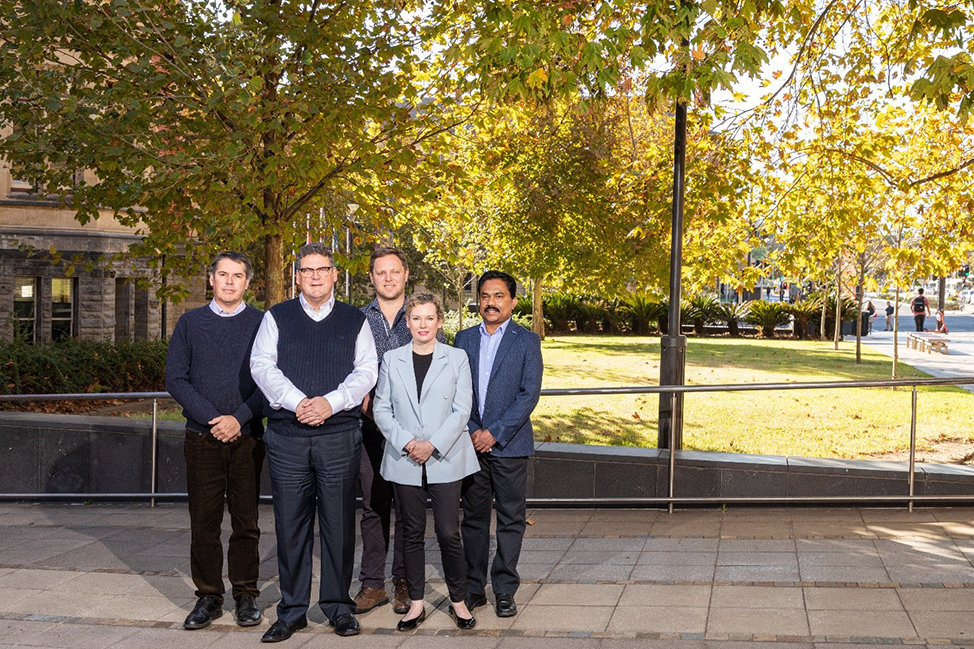- connecting our global network
31 May 2021
Promising New Technologies For Post-Stroke Depression

Dr Brenton Hordacre
Bachelor of Physiotherapy (Honours)
Senior Lecturer in Physiotherapy
Plasticity Theme Leader at Innovation, Implementation and Clinical Translation (IIMPACT) in Health
There are exciting developments coming out of the Innovation, Implementation and Clinical Translation (IIMPACT) team at the University of South Australia with a promising brain-based therapy providing new hope for post-stroke depression sufferers.
One in two people who survive stroke will experience depression. Most commonly, this will occur in the first year after stroke, although it can occur at any time and have a devastating impact.
Dr Brenton Hordacre is just one of UniSA’s mental health researchers whose inspiring work in post-stroke depression is already having meaningful impact.
This work is highlighted as part of the UniSA’s Enterprising Minds for Mental Health fundraising appeal. Through the appeal, UniSA is asking our community in join us in making mental health a priority by donating to the Mental Health Research Fund, supporting such crucial research.

As the Senior Research Fellow and Plasticity Theme Leader at IIMPACT, Dr Brenton Hordacre’s current research involves repetitive transcranial magnetic stimulation (rTMS) – a safe and promising treatment with very few side effects that works by increasing brain activity with electromagnetic pulses – to change neural activity in the brain and improve depression.
With a generous donation from the Honda Foundation to purchase the equipment to enable this rTMS research, and having recently received a significant funding boost from The Breakthrough Mental Health Research Foundation (Breakthrough), Dr Hordacre and his IIMPACT team are dedicating research efforts to better understand how this treatment works in people who have had a stroke.
They are identifying the neural characteristics that enable greater clinical response to rTMS treatment for post-stroke depression, with hopes of implementing the research through a dedicated stroke rehabilitation clinic at the University.
This work is important because the treatment works by changing brain activity. Adapting this therapy to people with stroke is complicated by the fact that stroke causes permanent brain damage, possibly dampening or modifying the way brain tissue is affected by rTMS.
“A stroke is a life-changing event in itself, bringing about personality, mood and emotional changes, so there is a very strong link between stroke, depression and anxiety,” Dr Hordacre says.

“Post-stroke depression is under recognised and poorly treated, with incredibly negative consequences for recovery, activities of daily living, self-efficacy and mortality,” Dr Hordacre says.
“Current pharmacology management is hampered by several side-effects and poor treatment adherence. We need better treatment solutions for this somewhat neglected aspect of stroke care.”
“While rTMS appears promising in depressed, but otherwise neurologically intact people, there remains significant variability in clinical responses to rTMS for people with stroke. This is probably because of the permanent brain damage. If we can better target this treatment, we can improve care for people with post-stroke depression.”
UniSA’s Deputy Vice Chancellor Research and Enterprise, Professor Marnie Hughes- Warrington is inspired by the remarkable stories about the inspiring and important work that our leading researchers are undertaking in the area of mental health, just like Dr Hordacre.
“Mental health is at a critical level. With one in five Australians impacted by a mental health condition during their lifetime, it seems we all know someone who needs support.”

“At UniSA we desire outcomes that will deliver an immediate and tangible impact, providing much needed support and positive solutions for the whole community. Our innovative, highly informed research can transform lives.”
That is why compassionate and individualistic approaches to ensuring research that makes a difference at the point of care are needed – and why the University of South Australia has established the Mental Health Research Fund – to address these needs from prevention, through to complex and acute responses designed for people in crisis, right up to the point of care, our work spans the whole spectrum.
Support research like Dr Brenton Hordacre and IIMPACT’s rTMS treatment for post-stroke depression sufferers by donating to UniSA’s Enterprising Minds for Mental Health.
If you or anyone you know needs help, please contact:
Lifeline on 13 11 14 or www.lifeline.org.au
Kids Helpline on 1800 551 800
MensLine Australia on 1300 789 978
Suicide Call Back Service on 1300 659 467
Beyond Blue on 1300 224 636
Beyond Blue on 1300 224 636
Headspace on 1800 650 890
Join UniSA in making mental health a priority
At UniSA, our researchers are dedicated to helping people who strive to live a better life. Join us in making mental health a priority by donating to the UniSA Mental Health Research Fund today.
When you give today, 100% of your donation will go directly to UniSA's mental health researchers – with no admin fees or hidden costs.



